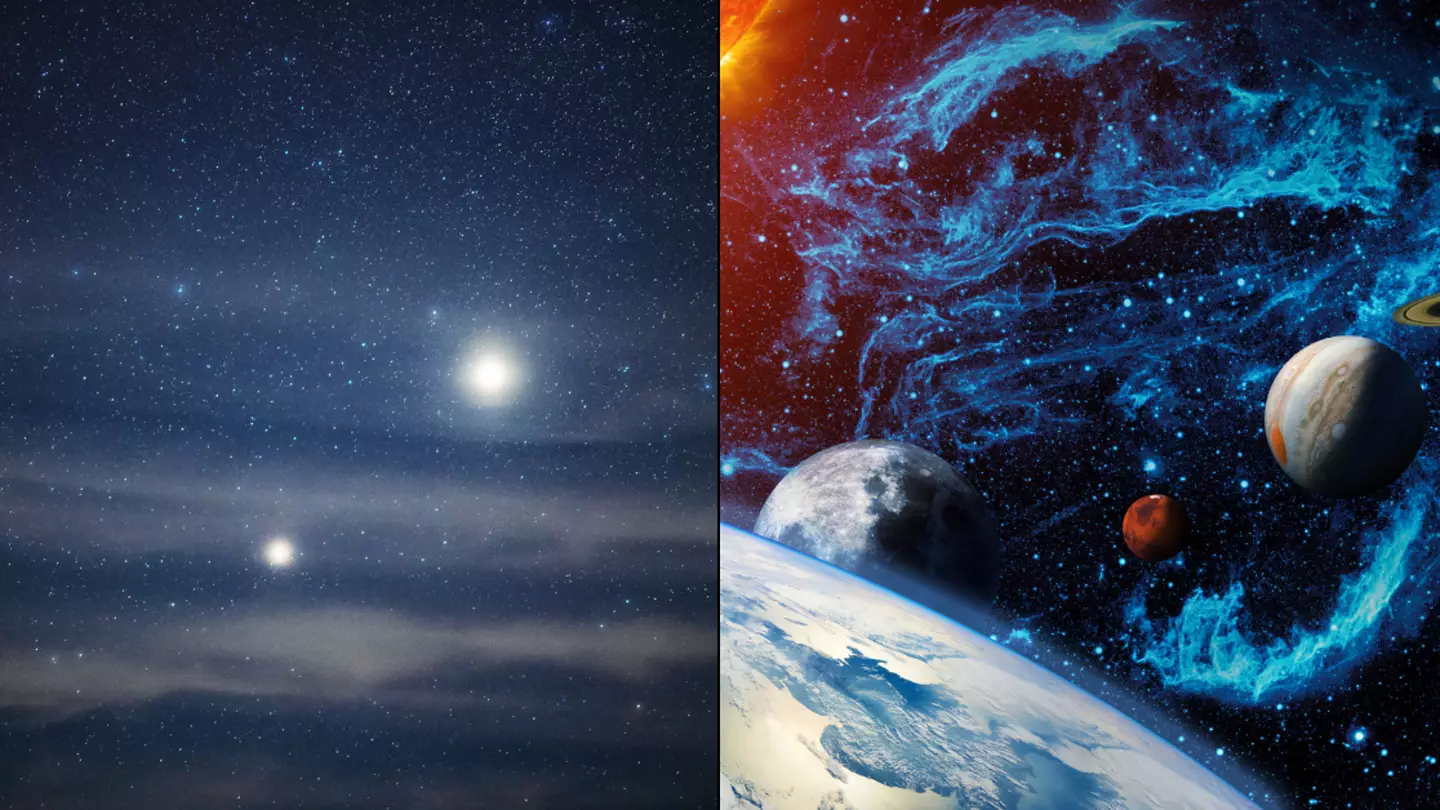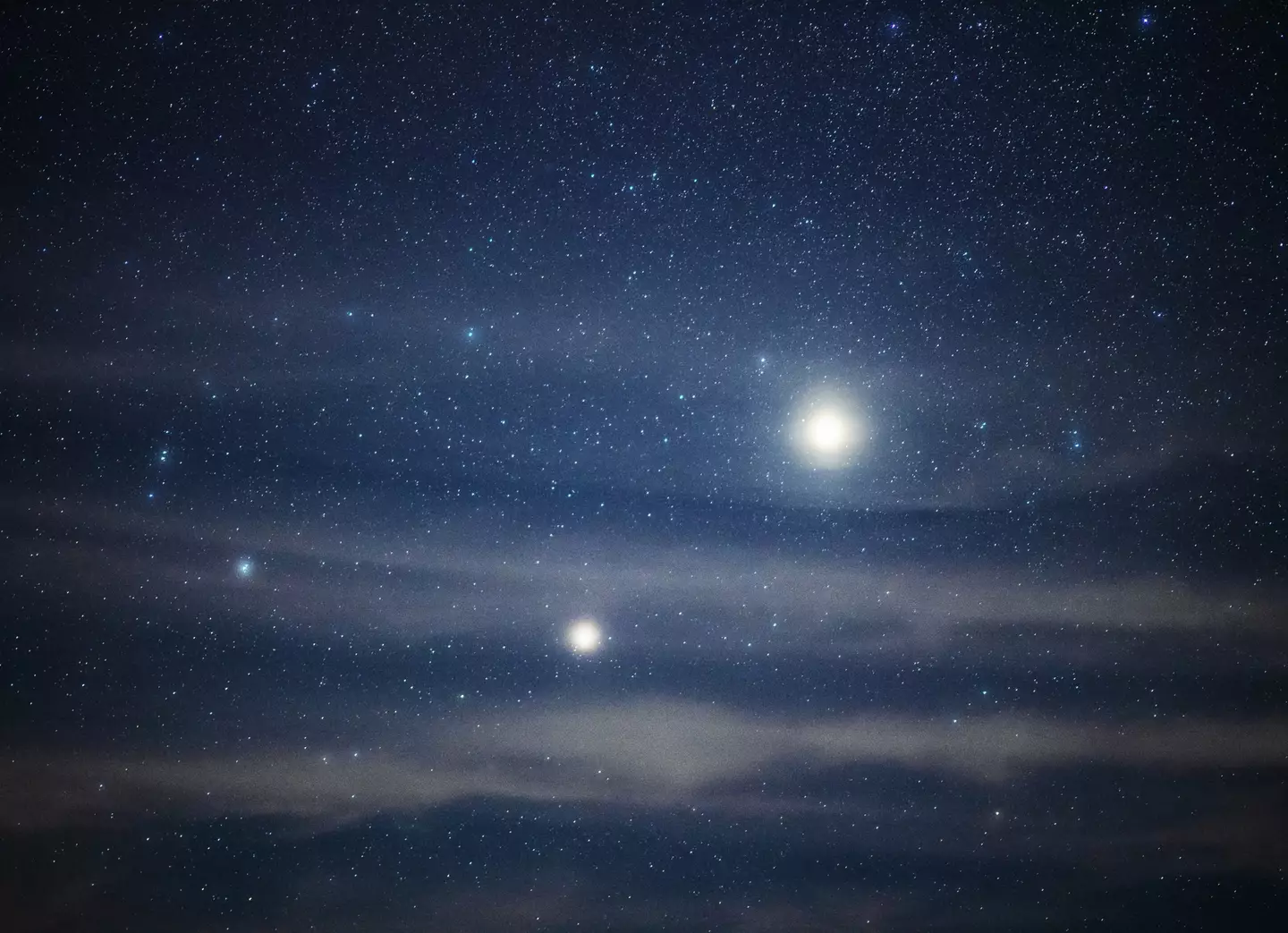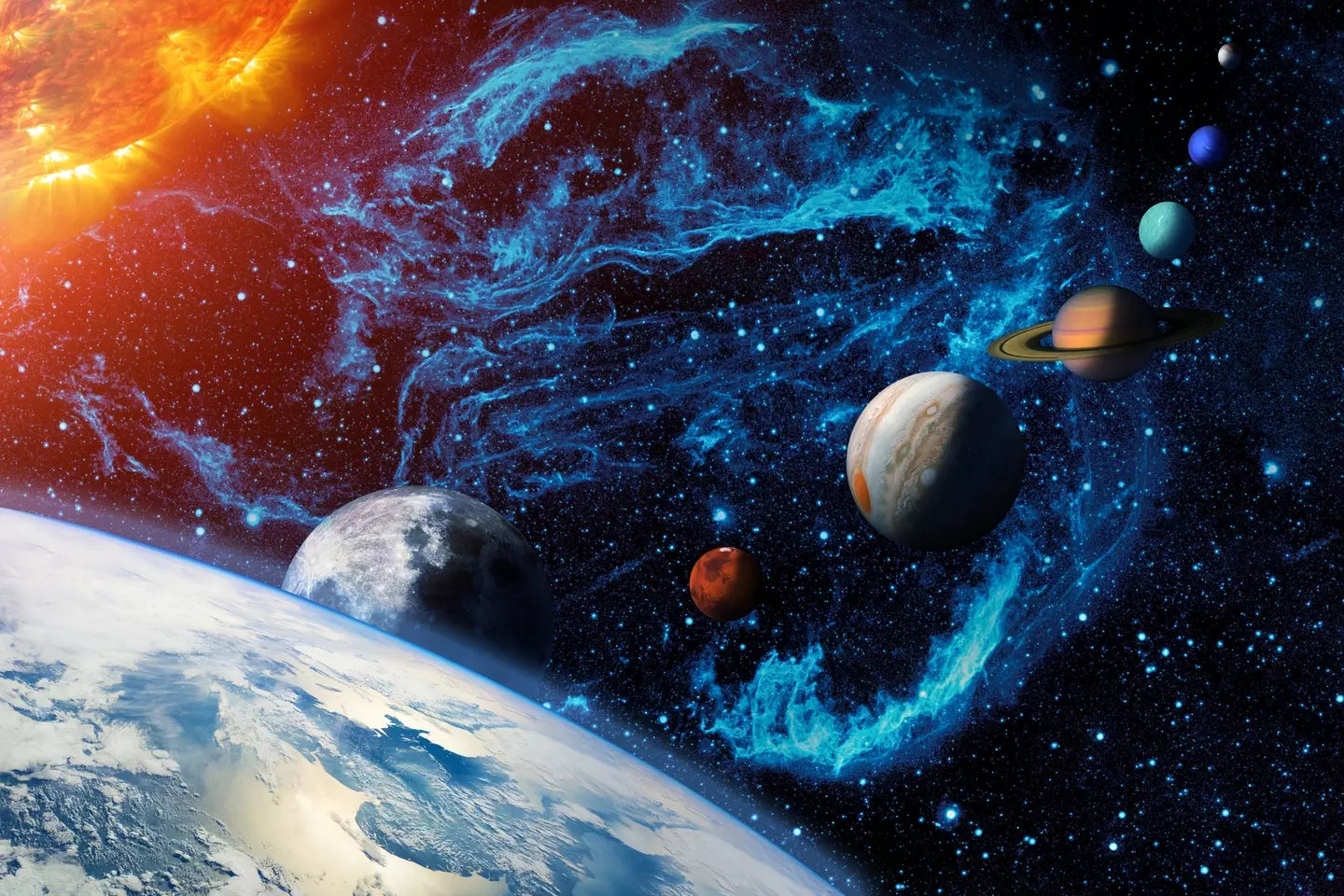
There will be a 'planetary parade' on show for us mere Earthlings come Tuesday night.
It's a rare cosmic event that will give us all something to look forward to on these freezing winter nights.
Sometimes, it's easy to forget that we're spoiled with one of the best observatories in our solar system, and it's called Earth. In fact, this Tuesday (21 January), six planets will line up in the night sky above us, for all to see.

What is a 'planetary parade'?
Tomorrow evening, Venus, Mars, Jupiter, Saturn, Uranus and Neptune will be visible and on the same side of the Sun, as viewed from Earth.
Advert
Most easily seen if the British skies stay cloud-free (highly doubtful), you should be able to spot the planets among the stars at night.
You'll be able to spot the six planets through their distinctive appearances - scroll down to see what you're looking for.
How do I catch the 'planetary parade'?
To catch the event, you'll need to go outside in the evening a few hours after sunset, and turn southeast.
The planets will appear in a long diagonal line from east to south in the night sky.
Planets also appear differently to stars, as they don't twinkle as much, instead shining more steadily.
What does each planet look like?
Mars will be the furthest east, appearing with a subtle red or orange colour, while Venus will be the brightest thing in the sky apart from the Moon.
Moving beyond the asteroid belt, Jupiter will outshine everything in its tan colour other than the Moon and Venus, though Saturn will be more of a pale yellow hue, due to its atmosphere.
Unfortunately, you'll need a telescope to see Uranus and Neptune, the furthest planets in our solar system - sorry, Pluto.
Uranus will appear as a pale cyan disk with limb darkening, while Neptune will have a blue-green colour.
If you miss it tomorrow night, then don't worry, the same occurrence, will be in our night sky on 28 February, this time with Mercury included.

How hard will they be to spot?
The Met Office has revealed there will be cloudy conditions on Tuesday, though it is expected that clear patches will appear in the north.
Speaking to MailOnline, a spokesperson said: "A cloudier [Tuesday] night in the south, with clearer skies and variable amounts of cloud in Scotland, Northern Ireland and northern England.
"Patchy fog developing where skies remain predominantly clear."
It is also advised that you don't wait too long after sunset to have a look, as in just a couple of hours, Venus, Saturn and Neptune will dip below the horizon.
The Moon is also in its last quarter phase, with the darker light meaning that we've got a great opportunity to view our neighbouring planets.
Where should I go to view the planets?
Going to areas away from light pollution and giving your eyes time to adjust to the darkness is key.
Optimal spots are the Lake District in Cumbria, Arthur's Seat in Edinburgh, and even the Shetland Islands - think countryside and open rural spaces.